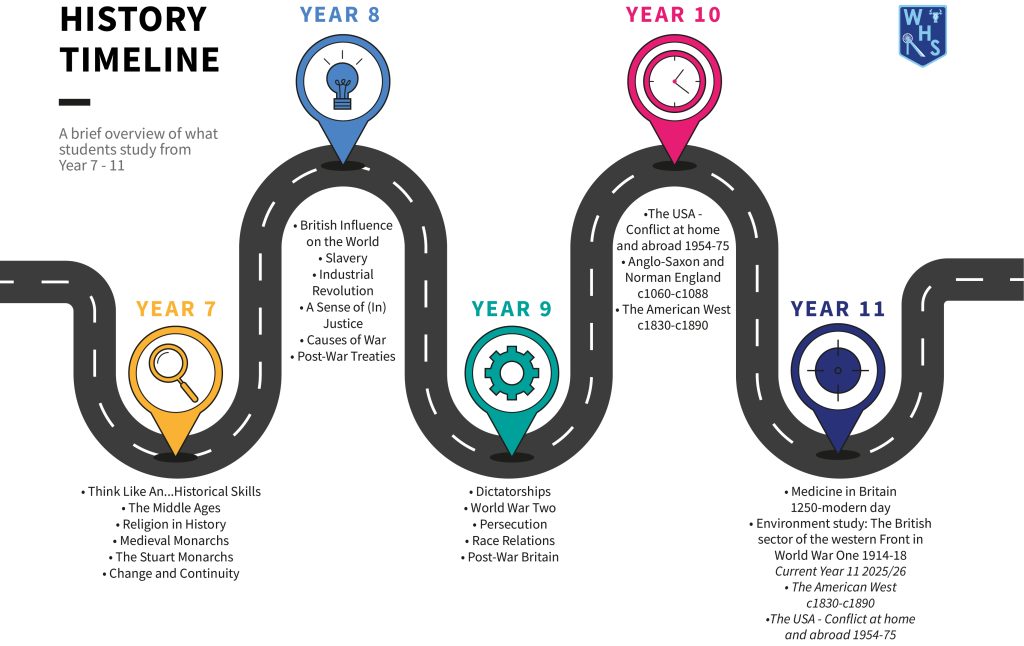In History at Westhoughton High School, all our students LEARN. Our curriculum is developed to bring to life engaging topics from the past so students ENJOY studying past events, and their impact on the world we live in today. Budding historians are encouraged academically to AIM HIGH as they learn to think critically, make reasoned arguments and debate their opinions. History a highly relevant, as the past often informs the present and the future and the skills learned in evaluation, research and interpretation are significant for students’ future learning and employment.
Our aim is to help students RESPECT and understand their place in Britain in the 21st century and understand how history has shaped the world and current events. History lessons allow all students to build a body of knowledge about local history, the history of Britain and the wider world, which will help them make sense of the world they live in today.
We encourage our historians to NEVER STOP LEARNING and develop a lifetime interest in the events that shape our world. In History, pupils will develop a deeper understanding of concepts such as power, rights, religion, resistance, conflict, society and empire in their study of the government, the Church and the people. We introduce our students to the worlds of Medieval England, the Tudors and Stuarts, Empire, Slavery, the Industrial Revolution, World War 1, inter-war dictators, World War 2, the Holocaust and Civil Rights in the 20th Century. Our students will study key events, organisations and people in history through key disciplinary skills such as cause and consequence, significance, change and continuity, similarity and difference in the acquisition of this historical knowledge.
Please see parental overview of the course in KS3 and KS4 below:
 Links for Support/Help at Home
Links for Support/Help at Home
- Use of student resources located within WHS SharePoint for students
- Further research of periods covered
- Museum Visits (local or national)
- Home construction of key historical moments within Middle Ages
- Documentary viewing or additional field research
- Key Terminology discussion of meaning at home
- Encouragement to join extra-curricular opportunities in History

